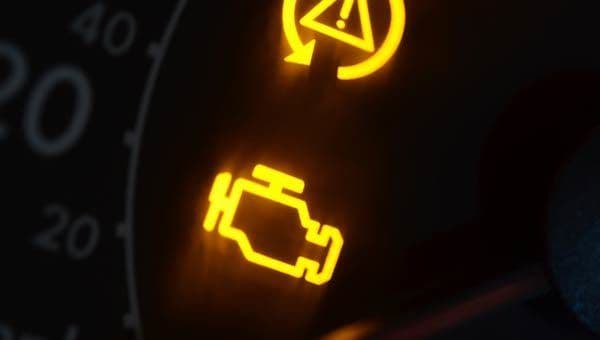Safe Auto Care's GuideIs it safe to continue driving with the Check Engine Light on?

Understanding the Check Engine Light
What the Check Engine Light Means
The check engine light, often represented by an icon of an engine or the words "Check Engine," is a crucial indicator on your vehicle's dashboard. This light can signal various issues ranging from minor inconveniences to severe problems that need immediate attention. Understanding the importance of this light is essential for maintaining your vehicle's health and ensuring your safety on the road.
Common Causes for the Check Engine Light
When the check engine light illuminates, it could be due to several reasons:
- A loose or faulty gas cap
- Oxygen sensor needing replacement
- Catalytic converter issues
- Faulty spark plugs or wires
- Mass airflow sensor problems
While some of these issues are minor and can be fixed easily, others might require professional diagnosis and repair.
Immediate vs. Delayed Attention
Not all check engine light warnings are created equal. Some problems necessitate immediate action to prevent further damage, while others can wait a bit longer. Learning to distinguish between these can save you from costly repairs and dangerous situations.
Initial Response to the Check Engine Light
What to Do When the Light Comes On
When the check engine light turns on, your first reaction should be to remain calm. Safely pull over and check if there are any immediate signs of trouble such as strange noises, smoke, or loss of power. If everything seems normal, it is generally safe to continue driving to a nearby service center or your home.
Diagnosing the Issue
To diagnose the problem, an OBD-II scanner can be invaluable. This device reads the trouble codes from your vehicle's computer system, giving you a clearer idea of what might be wrong. Many auto parts stores offer free scanning services, or you can purchase an affordable scanner for personal use.
Importance of an OBD-II Scanner
An OBD-II scanner can help you avoid unnecessary trips to the mechanic by identifying minor issues that you can fix yourself. It also provides peace of mind by giving you an understanding of the severity of the problem, helping you decide whether you need immediate professional help or if the issue can wait.
Potential Risks of Ignoring the Light
Engine Damage
Ignoring the check engine light can lead to significant engine damage over time. For example, a faulty oxygen sensor might cause the engine to burn more fuel than necessary, which can damage the catalytic converter and lead to costly repairs.
Emissions Problems
A malfunctioning component that triggers the check engine light can result in increased emissions, contributing to environmental pollution. This not only harms the environment but can also result in your vehicle failing emissions tests required by law.
Reduced Fuel Efficiency
Many problems indicated by the check engine light can reduce your vehicle’s fuel efficiency. Addressing these issues promptly can save you money on fuel in the long run and keep your vehicle running efficiently.
Safety Concerns and Driving
Assessing Immediate Risks
Before deciding to continue driving with the check engine light on, assess any immediate risks. If you notice significant changes in your vehicle’s performance, such as reduced power, unusual noises, or vibrations, it’s best to stop driving and seek professional assistance immediately.
Safe Driving Tips
If you must drive with the check engine light on, follow these tips to stay safe:
- Drive slowly and avoid hard acceleration
- Avoid long trips or heavy loads
- Monitor your dashboard for any additional warning lights or unusual behavior
When to Stop Driving Immediately
Certain symptoms accompanying the check engine light should prompt you to stop driving immediately. These include:
- Flashing check engine light
- Severe loss of power
- Smoke from the engine
- Overheating
- Loud noises from the engine
Professional Assessment
Seeking Professional Help
When in doubt, seeking professional help is always a good idea. A certified mechanic can perform a thorough diagnostic check and recommend the necessary repairs. This ensures that any underlying issues are addressed before they become more serious.
What to Expect During a Diagnostic Check
During a diagnostic check, a mechanic will use specialized tools to read the trouble codes from your vehicle’s computer system. They will then perform a series of tests to pinpoint the exact cause of the problem. This process can take anywhere from a few minutes to several hours, depending on the complexity of the issue.
Costs Involved
The cost of diagnosing and fixing the problem can vary widely. Minor issues like a loose gas cap or faulty spark plugs might only cost a few dollars, while more severe problems like a failing catalytic converter or engine repairs can run into the hundreds or even thousands of dollars.
Preventative Measures
Regular Maintenance
Regular maintenance is key to preventing check engine light issues. This includes routine oil changes, replacing air filters, and ensuring that all components are functioning correctly. Following your vehicle’s maintenance schedule can help you avoid unexpected problems.
Recognizing Early Warning Signs
Pay attention to early warning signs such as decreased performance, strange noises, or unusual smells. Addressing these symptoms early can prevent more serious issues from developing and save you money on repairs.
Importance of Timely Repairs
Timely repairs are crucial for maintaining your vehicle's health and performance. Ignoring minor issues can lead to more severe problems down the line, so it’s always best to address them as soon as possible.
Technology and Modern Vehicles
Advanced Warning Systems
Modern vehicles come equipped with advanced warning systems that can detect issues before they become serious. These systems provide detailed information about the problem, making it easier for you to understand what’s wrong and how to fix it.
Role of Software Updates
Software updates can improve the performance and efficiency of your vehicle’s computer system. Keeping your vehicle’s software up-to-date ensures that it can accurately detect and diagnose problems, helping you maintain its health and performance.
Impact of Modern Technology on Vehicle Health
Modern technology has significantly improved the safety and reliability of vehicles. Advanced sensors and diagnostic tools make it easier to identify and fix issues, ensuring that your vehicle remains in good condition for longer.
Legal and Environmental Implications
Emissions Regulations
Emissions regulations are designed to reduce the environmental impact of vehicles. Ignoring the check engine light can lead to increased emissions, potentially resulting in your vehicle failing emissions tests and incurring fines.
Legal Penalties
In some areas, driving with a check engine light on can result in legal penalties if it leads to increased emissions or other safety issues. Ensuring that your vehicle complies with emissions regulations is important for avoiding these penalties.
Environmental Impact
Ignoring the check engine light can contribute to environmental pollution. Addressing the issues that trigger this light helps reduce your vehicle’s emissions, contributing to a healthier environment.
Real-Life Experiences
Stories from Drivers
Many drivers have experienced the anxiety and uncertainty that comes with a check engine light. Sharing these stories can provide valuable insights and help others understand the importance of addressing this issue promptly.
Expert Opinions
Automotive experts agree that the check engine light should never be ignored. Their insights and recommendations can help you make informed decisions about how to handle this warning and keep your vehicle in good condition.
Lessons Learned
Learning from the experiences of others can help you avoid common mistakes and ensure that you address check engine light issues promptly. These lessons can save you time, money, and stress in the long run.
Get Your Free Inspection Now!
Looking for reliable auto repair near you? Look no further, Safe Auto care has the best Experienced mechanics in Las vegas
